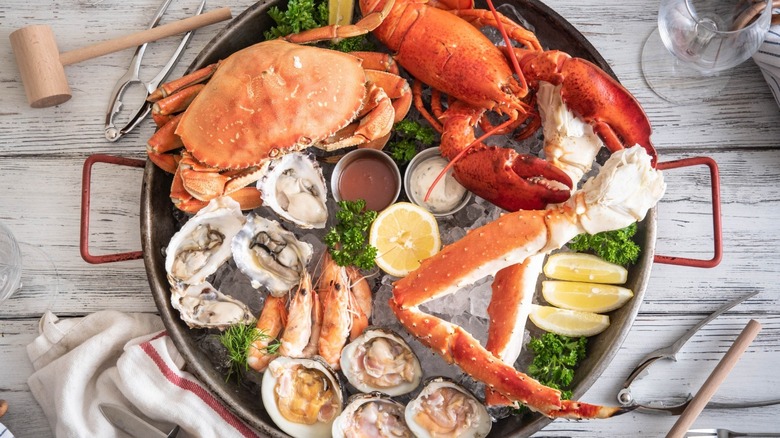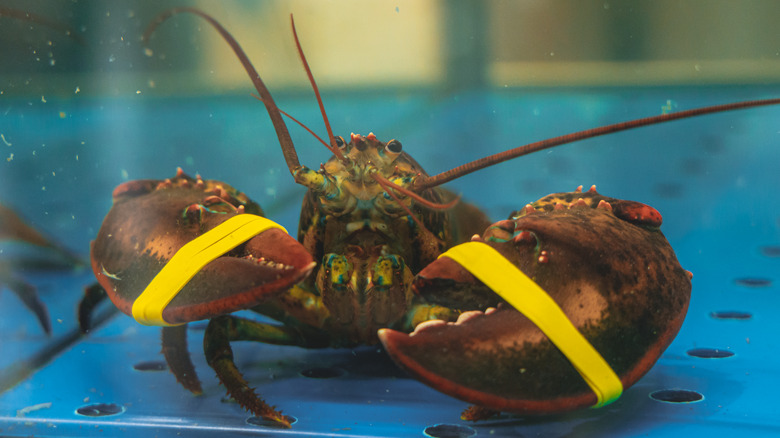What This New UK Ruling Means For The Way Your Seafood Is Prepared
Octopi, crabs, and lobsters may not look like they do very much in the ocean other than mind their own business. But scientists who have been studying them for years say these animals, also classified as cephalopods and decapods, are actually more intelligent than they appear to the human eye. In fact, a review of these sea creatures concludes that they are "sentient" — they have the ability to feel sensations — and therefore should be treated as such (via Insider).
British lawmakers tasked with reviewing animal rights legislation said part of the problem with declaring these animals to be "sentient" in the past had to do with the way humans studied their anatomies. For a while, scientists compared the animals with human "neurological architecture" — an approach that isn't able to fully capture what it means for an animal to have the ability to think and feel (via The Guardian).
But as a report prepared by the Conservative Animal Welfare Foundation pointed out, "crustaceans and cephalopods undoubtedly experience the world in extremely different ways to ourselves. What matters, though, is whether that experience entails conscious experience of pleasure and pain. We believe that the evidence is sufficient to show that these animals do experience pleasure and pain."
The report recommends certain actions be taken
The groundbreaking research helped scientists like London School of Economics and Political Science professor Jonathan Birch change the government's thinking on how it viewed these invertebrates. Birch said he was "pleased to see the government implementing a central recommendation of my team's report. Octopuses and other cephalopods have been protected in science for years, but have not received any protection outside the field until now" (via Insider).
The report recommends the banning of certain actions taken toward octopi, crabs, and lobsters, including de-clawing crabs; selling live crabs and lobsters to those who are neither trained nor equipped to handle them; and banning the practice of either boiling them alive or taking them apart and dismembering them alive. The report even wants industries to look for ways to slaughter these animals in a more humane way.
The act is not intended to disrupt existing industrial practices. Rather, it is meant to ensure that the welfare of these sea creatures is taken into consideration when new laws and policies are deliberated on (via U.K. Government).

